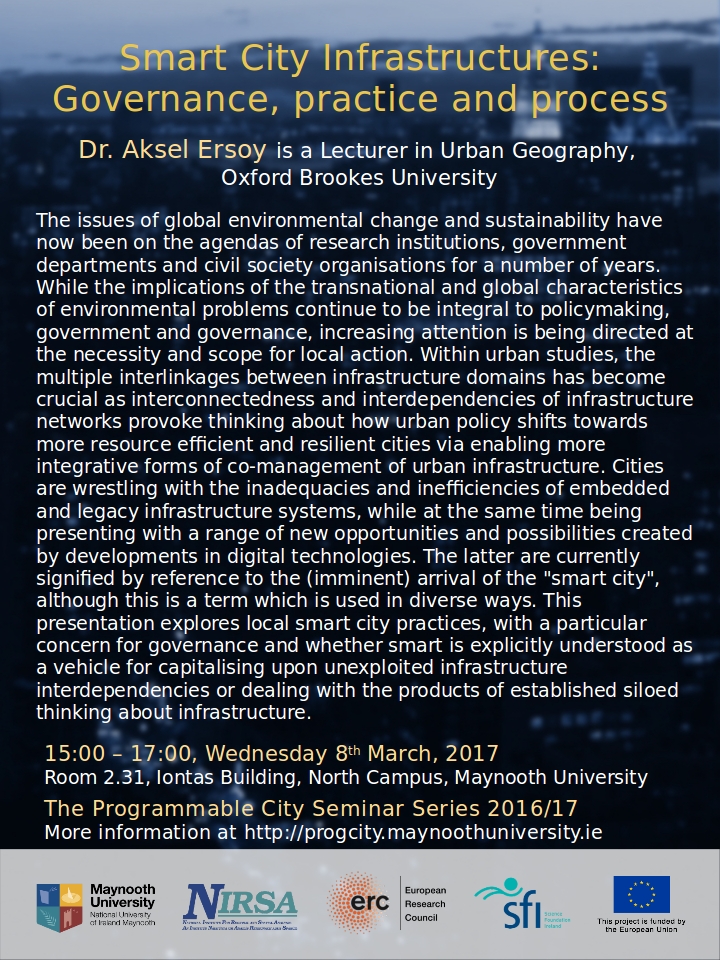Rob Kitchin, Claudio Coletta, Leighton Evans, Liam Heaphy and Darach MacDonncha have published a new working paper: ‘Smart cities, urban technocrats, epistemic communities and advocacy coalitions‘ on on SocArXiv. It has been prepared for the ‘A New Technocracy’ workshop,University of Amsterdam, March 20-21 2017.
Abstract
In this paper, we argue that the ideas, ideals and the rapid proliferation of smart city rhetoric and initiatives globally have been facilitated and promoted by three inter-related communities. A new set of ‘urban technocrats’ – chief innovation/technology/data officers, project managers, consultants, designers, engineers, change-management civil servants, and academics – many of which have become embedded in city administrations. A smart cities ‘epistemic community’; that is, a network of knowledge and policy experts that share a worldview and a common set of normative beliefs, values and practices with respect to addressing urban issues, and work to help decision-makers identify and deploy technological solutions to solve city problems. A wider ‘advocacy coalition’ of smart city stakeholders and vested interests who collaborate to promote the uptake and embedding of a smart city approach to urban management and governance. We examine the roles of new urban technocrats and the multiscale formation and operation of a smart cities epistemic community and advocacy coalitions, detailing a number of institutional networks at global, supra-national, national, and local scales. In the final section, we consider the translation of the ideas and practices of the smart city into the policies and work of city administrations. In particular, we consider what might be termed the ‘last mile problem’ and the reasons why, despite a vast and active set of technocrats and epistemic community and advocacy coalition, smart city initiatives are yet to become fully mainstreamed and the smart city mission successfully realized in cities across the globe. We illustrate this last mile problem through a discussion of plans to introduce smart lighting in Dublin.
Key words: smart cities, epistemic community, advocacy coalition, technocrats, urban governance, city administration, smart lighting
The paper can be downloaded here



